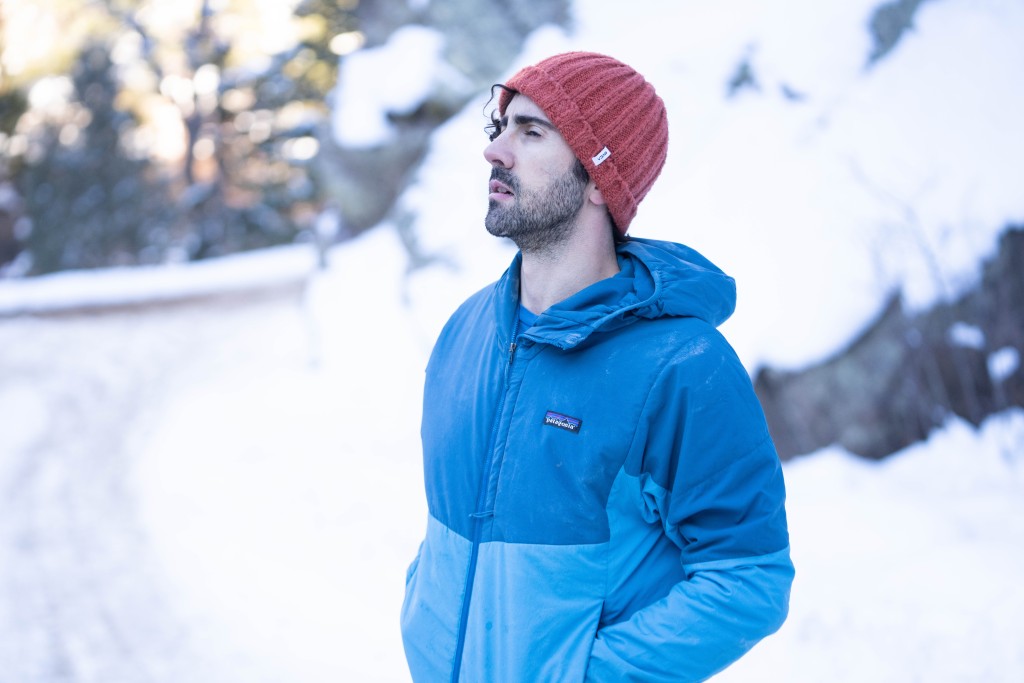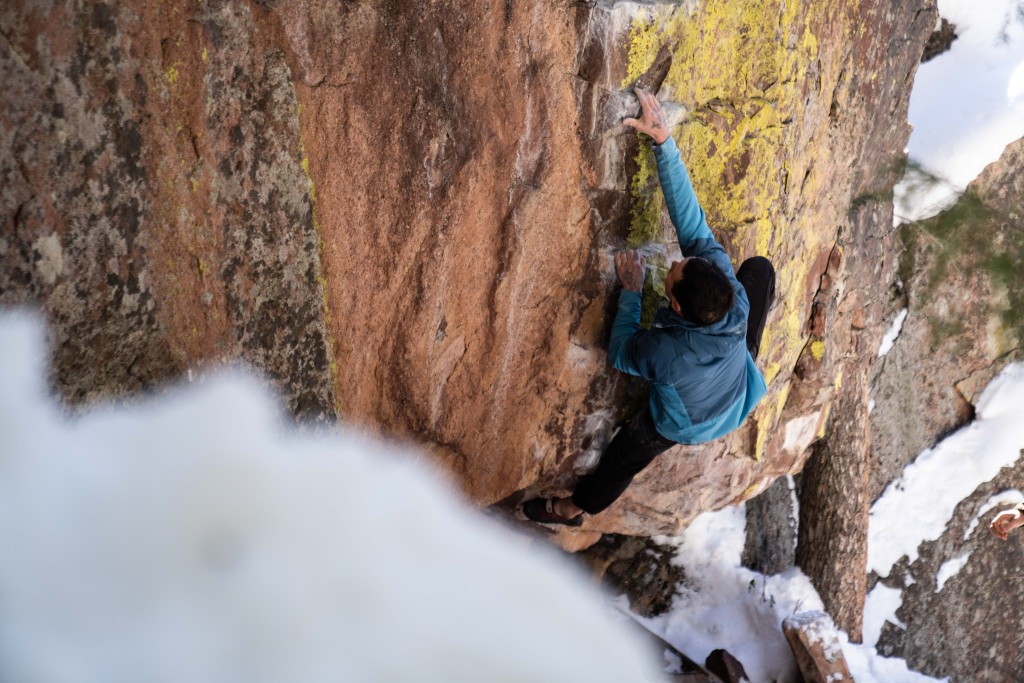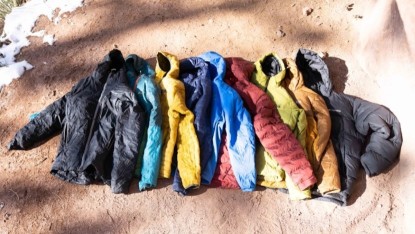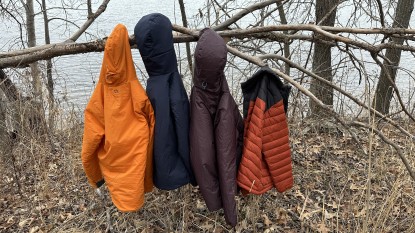Our Verdict
Our Analysis and Test Results
As the genre-defining synthetically insulated jacket, the Patagonia Nano-Air Hoody mastered the art of the mid-layer. Patagonia shaved weight on this classic jacket and implemented other improvements like anti-pilling face and liner and even more recycled materials. The jacket features two handwarmer pockets, a left chest pocket, and an ability to stuff into the left chest pocket. The hem drawstring has been removed in favor of an elasticized hem. We'll note that the fit of this jacket can be a bit difficult; it's described as “slim fitting” and feels tight against the skin with an extremely close hood. Though it's nice when stationary, this jacket can be a bit more difficult when raising the arms as it tends to restrict shoulder and armpit movements. Though the Nano-Air is stretchy and has articulated features, it lacks some of the hypermobility of some of our other test jackets. Still, it remains a popular jacket — and a great one if it fits you.
Performance Comparison
Warmth
Made with 60 g/m2 FullRange, a proprietary insulator made by Patagonia in conjunction with Japan's Toray Mills, the Nano-Air Hoody comes in on the thinner end of the review. We tested this jacket in a variety of conditions, predominately in cold weather by itself as an outer layer. The cold Colorado temperatures bit through the jacket, giving it a slightly lower ranking. However, Patagonia created this as an active-use piece for when excess heat is needed to leave the body. If you're looking for an ultra warm jacket, this isn't the one. But if you want a versatile mid-layer to add to a layering system, this jacket can provide active warmth.
Weight and Compressibility
Our men's size medium test jacket weighed in on our independent scale at 12.52 ounces, making it one of the lighter insulated options. With only one chest pocket and lacking any drawcords or buckles to fine-tune the fit, even in the hem, it's not surprising that Patagonia has managed to minimize the weight.
One nice attribute of the jacket is its ability to stuff into the chest pocket fairly easily. Many of the other jackets that compress like this can be cumbersome to stuff, but this piece stowed well and can easily clip onto the outside of a pack, the side of a climbing harness, or into a pack.
Comfort
The interior liner fabric of the Nano-Air feels incredibly soft against the skin and better than any of the other jackets we tested. The microtexture creates a near cotton-like material that our testers compared to their favorite sweatshirt. The four-way stretch fabric provides some mobility, but the overly slim fit inhibits mobility, especially with other layers underneath.
The sleeves fit snuggly, making pulling them over our forearms difficult, which is usually how we cool off a bit while running or climbing. The collar can be slightly restrictive, and the hood needs to be actively pulled to fit properly. If it fits you well, you may love it — but our difficulty with the fit made us prefer other mid-layer options from different companies for more mobility.
Weather Resistance
While Patagonia treated this jacket with a PFC-free DWR finish (durable water-repellent coating that does not contain perfluorinated chemicals), it failed to perform quite as well as the other jackets we reviewed when we sprayed it with a hose and when we poured water on it. While it did work well against some beading and in light rain, our testers wanted a rain shell or something more water-resistant when the forecast turned sour.
Breathability
The Nano-Air shines in terms of its breathability, with Patagonia measuring the air permeability at 40 cubic feet per meter (40CFM), allowing excess heat to move away from the body. Ideal for skinning uphill, Nordic skiing, running in cold temps, heavy hiking, or engaging in any physically strenuous activity, this jacket breathes with the best of them.
Should You Buy the Patagonia Nano-Air Hoody?
The well-loved and popular Patagonia Nano-Air Hoody thrives in aerobic circumstances where its thin layer of insulation provides just the right ratio of breathability to warmth. Though fairly thin for standalone use, lacking in weather resistance, and with a problematic fit for some, this piece still shines as a classic. It's a great mid-layer piece if you need breathability, and if you dig the fit, we recommend it.
What Other Insulated Jackets Should You Consider?
The Patagonia Nano-Air Hoody performed best in terms of its breathability, so if you're looking for something similar, try the Arc'teryx Atom Hoody, which is our favorite of this style jacket. If you want something more weather-resistant, check out the Patagonia DAS Light Hoody, which works great as a warmer outer layer, though it has less breathability than the Nano-Air.









